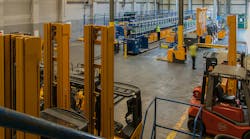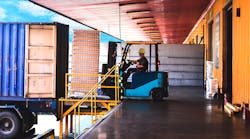In keeping with the sustainability theme of this month’s issue, I thought I’d clean up my desk and recycle some of the news releases I get in overwhelming numbers. A tip of the hat goes to Greg Bunker of Dow Chemical, whom I recently interviewed for another story. He mentioned Dow’s current efforts to produce plastic from sugar cane, thus setting off the alarm, reminding me I have a folder of these kinds of alternative-fuel stories that need recycling.
Dow’s is an interesting story for a couple of reasons, primarily because the product it will produce is not a bio-polymer. It will be, in fact, polyethylene made from sugar. At the molecular level, the product will be identical to the Dowlext polyethylene resins manufactured at other Dow facilities. An advantage of this material versus many other renewable, resourcebased plastics is that customers will be using a drop-in replacement made with a renewable resource, not a different polymer.
That’s the sort-of good news. The other side of the story, the part that has environmentalists concerned, is that it’s not biodegradable. Well, sort of not. There are mixtures of polyethylene resin that will break down in 20 to 30 years if exposed to the right mix of water and air, items lacking in most landfills.
In the end, polyethylene is 100% recyclable. Of course, that begs the problem of education and teaching people not to throw trash out the…Sorry. I slipped off track.
Editor-in-Chief [email protected]
Dow Chemical is the world’s largest producer of polyethylene, a material found in more material handling applications than I have room to list. It’s working with Crystalsev, one of Brazil’s larger ethanol players. The companies are working on a world-scale facility to manufacture polyethylene from sugar cane. The new facility will use ethanol derived from sugar cane, an annually renewable resource, to produce ethylene, the raw material for polyethylene. The plant is expected to start production in 2011 and will have a capacity of 350,000 metric tons. It is estimated that the new process will produce significantly less CO2, compared to the traditional polyethylene manufacturing process.
The challenge with biofuels, or any bio-product, was pointed out to me about a year ago while doing a story at Pioneer Hybrid International, Tipton, Ind. Bob Fearnow is responsible for moving 2.4 million bushels of soybeans and wheat seed through his multi-building complex located in America’s heartland. As we looked at how a company maintains inventory of billions of seeds that eventually become beefsteak and biofuel, I was struck by a blinding flash of the obvious: Where does the land come from to grow more corn and beans?
You don’t need a weatherman to tell which way the wind blows (thanks, Bob) and I sense a storm, far from perfect, on the horizon. As Americans continue to express environmental concerns, and manufacturers continue to move toward more eco-friendly everything, something’s gotta give. I recently saw a study from Mintel International (www.mintel.com) noting the number of new products making environmentally friendly claims has gone up about 200% between 2002 and 2007. People want to purchase products that help protect and preserve the planet. And, by golly, we’ll cut down every tree in sight to have more farmland to do it!
So, what’s the answer, smart guy?
Typically, I find my voice in the words of others. In this case, it’s something my grandmother used to say, “Even if you’re on the right track, you’ll get run over by the train if you stand still.” We better get moving.




